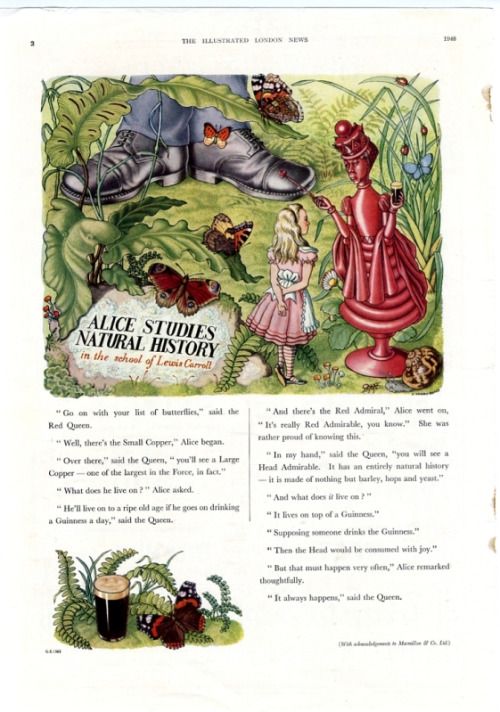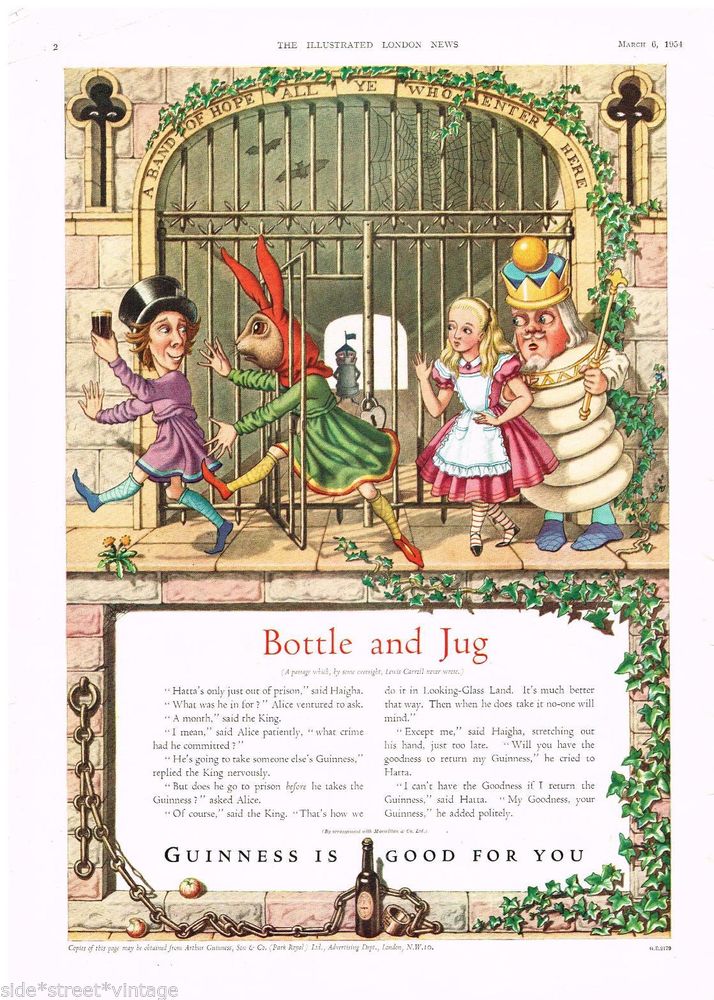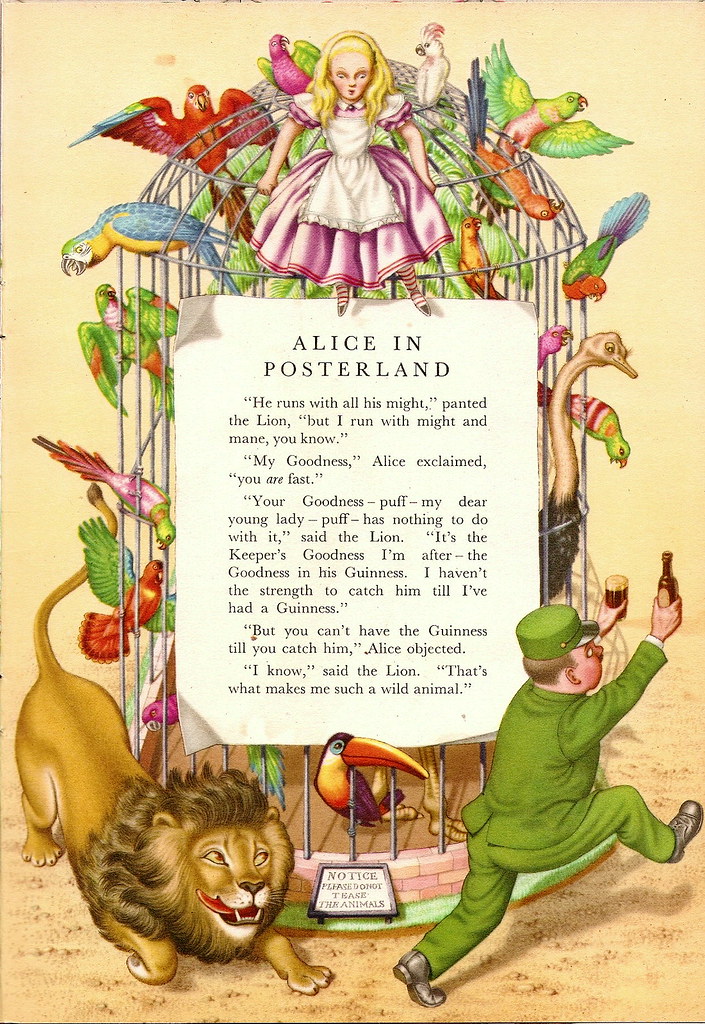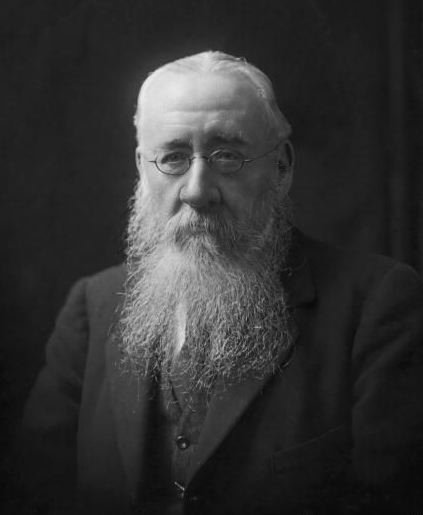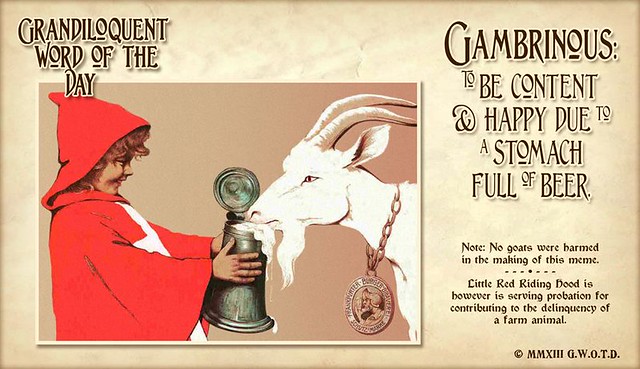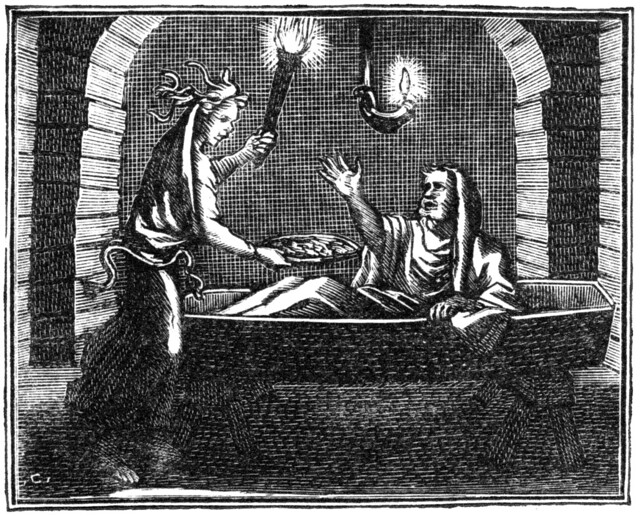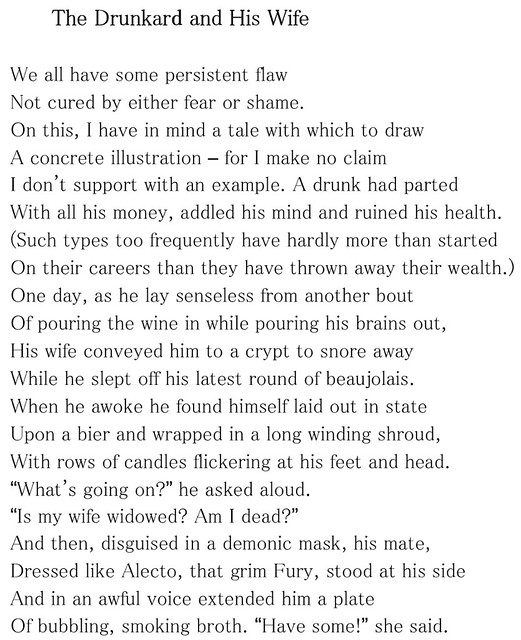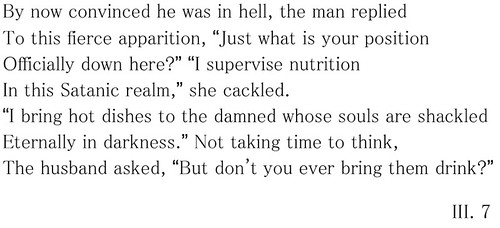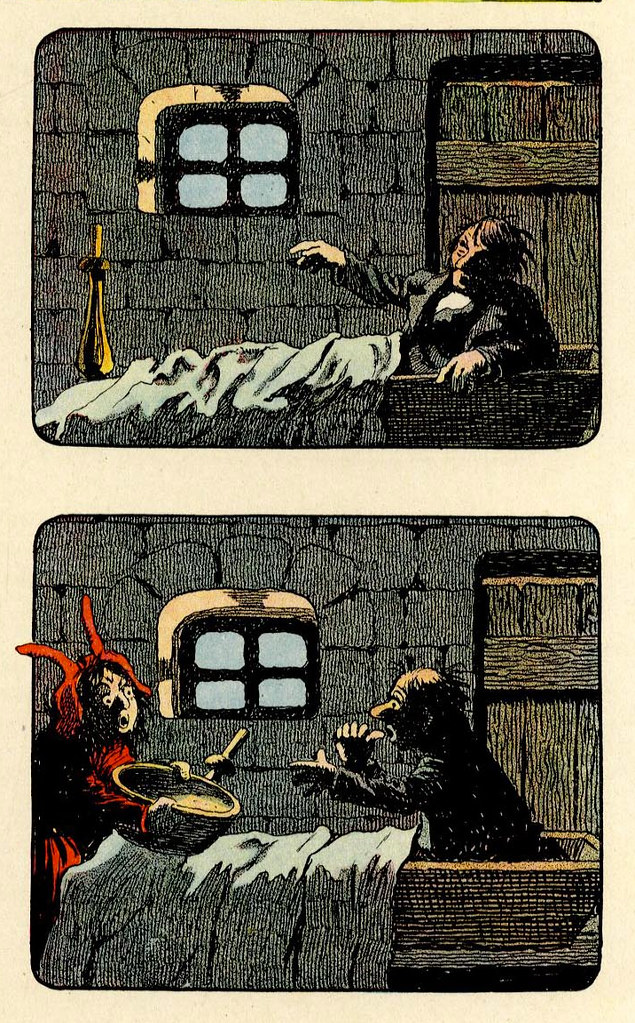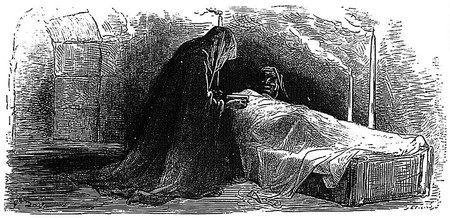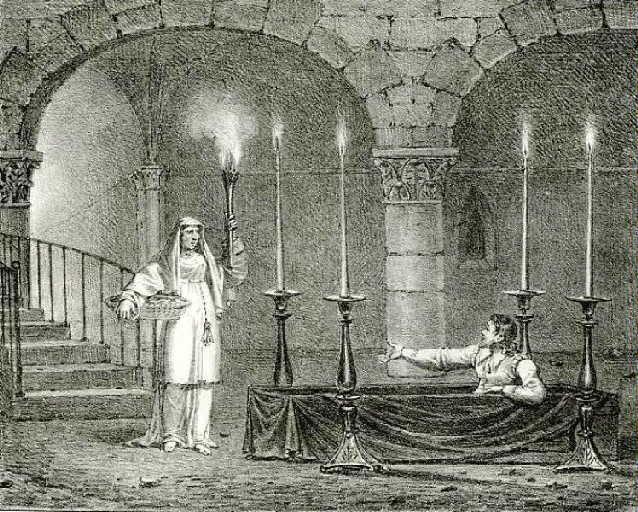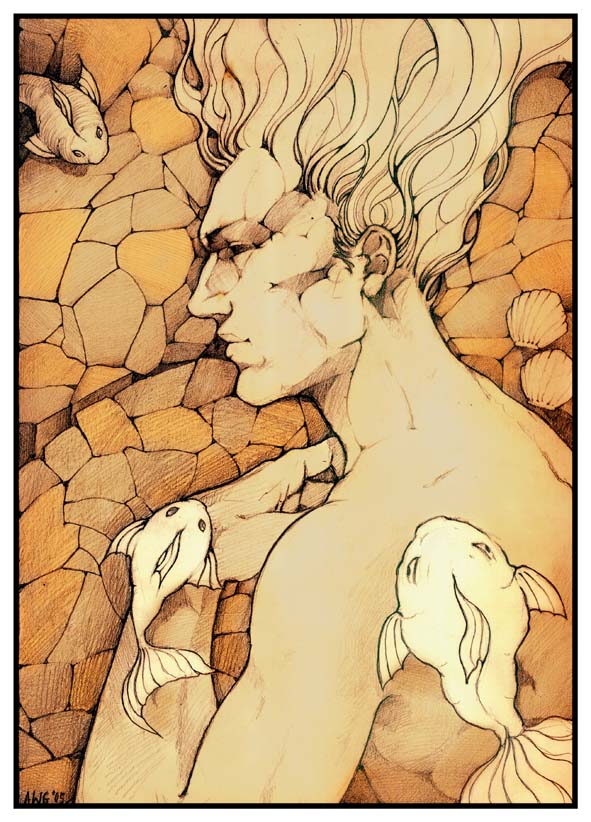
Sunday’s ad is for Guinness, from 1952. While the best known Guinness ads were undoubtedly the ones created by John Gilroy, Guinness had other creative ads throughout the same period and afterward, too, which are often overlooked. This ad, one of many that used Lewis Carroll’s Alice in Wonderland is titled “Alice Studies Natural History,” and features a Carroll-esque story about a tiny Alice conversing with the red queen about science … and Guinness.
